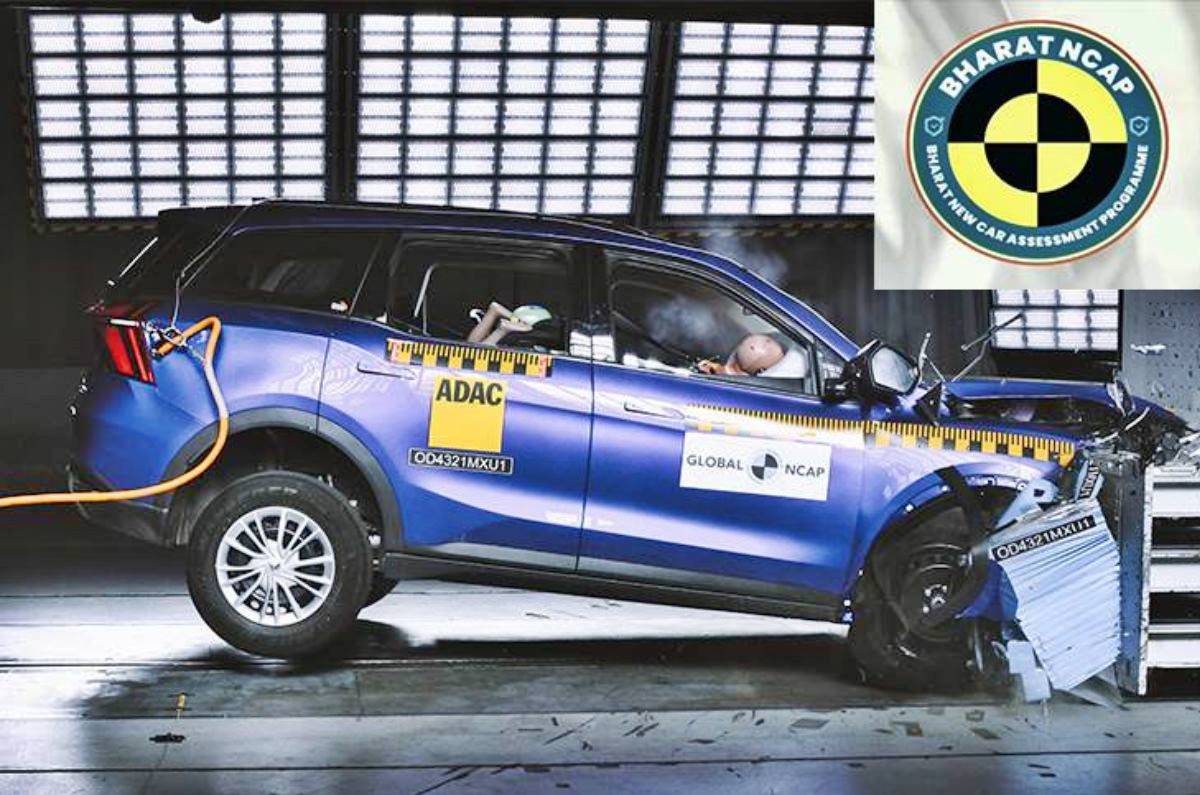The tests were supposed to begin in October, but were delayed due to the festive season.
The Government of India’s Bharat New Car Assessment Programme (BNCAP) has completed its first round of crash testing, with results expected this week or by the end of this month. This will help buyers make a more informed purchase decision. Bharat NCAP tests were supposed to begin on October 15th, but were pushed back to December 15th due to the busy holiday season.
While testing agencies have already submitted their evaluations, the formal process of assigning star ratings from 1-5 will be announced by the Central Institute of Road Transport (CIRT) Pune, which is the programme manager for the car assessment plan.
- Hyundai, Kia, Maruti and more have submitted cars for tests
- Bharat NCAP to test ICE, CNG and EVs
- Bharat NCAP test costs Rs 60 lakh; overseas test costs Rs 2.5 crore
Bharat NCAP results
Mahmood Ahmed, additional secretary, Ministry of Road Transport and Highways, told our sister publication Autocar Professional that the “government’s BNCAP programme is on track. We are hoping to share the results as soon as possible, which could be this week or before the end of the year.”
According to Autocar Professional, senior government officials are considering holding a mega event at which Road Transport Minister Nitin Gadkari and Bharat NCAP officials will likely announce the ratings. However, the plan is currently being debated, which explains why the ratings are yet to be announced on the BNCAP website.
Prominent manufacturers who have submitted their models for the first round of crash tests include Hyundai, Kia, Maruti Suzuki, Mahindra, Toyota and others. Bharat NCAP is a voluntary programme which tests the base variant of each car.
Bharat NCAP testing process
As part of the test regimen, Bharat NCAP conducts Adult Occupant Protection (AOP) and Child Occupant Protection (COP) tests on vehicles weighing up to 3,500kg, and gives them a safety rating between zero and five. However, while Global NCAP gives a separate rating for AOP and COP, Bharat NCAP will give a unified rating. The vehicles are picked at random by the Automotive Research Association of India (ARAI) and International Centre for Automotive Technology (ICAT) from authorised dealerships.
The crash test ratings of Bharat NCAP will apply to vehicles holding type approval, spanning across models with a seating capacity of up to eight, including the driver. Government officials went on to say that the testing regime includes evaluating and rating CNG, electric, and internal combustion engine vehicles. According to the guidelines, the testing agencies will conduct the frontal impact test at 64kph, the side impact test at 50kph and the pole side-impact test at 29kph.
During the programme’s launch, Gadkari had stated that over 30 models have already been nominated for testing, and added that a BNCAP test will cost Rs 60 lakh, while an overseas tests costs roughly Rs 2.50 crore.
Also See:
Bharat NCAP and Global NCAP: differences and similarities explained
Opinion: With Bharat NCAP out, it’s time for a road safety rating

